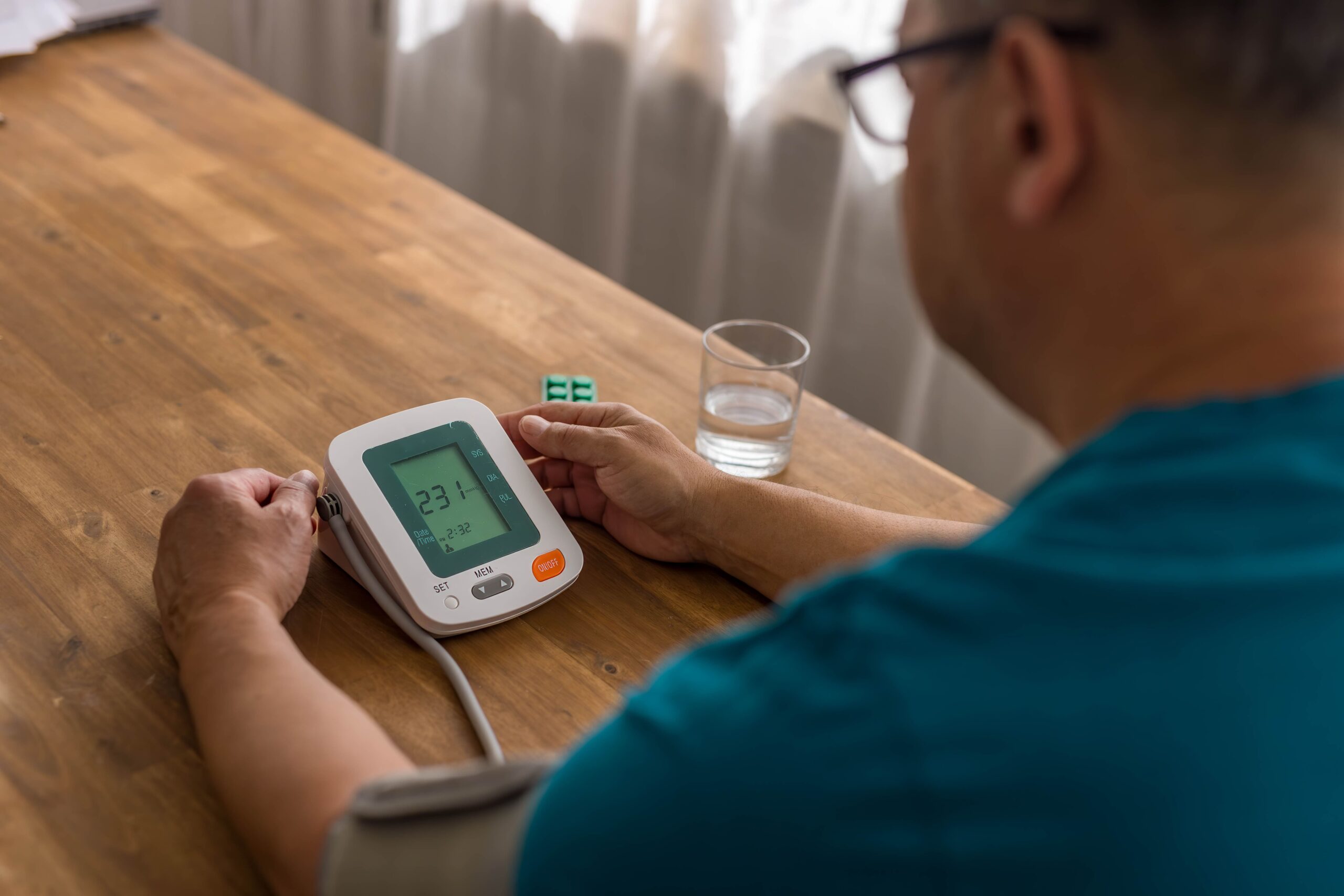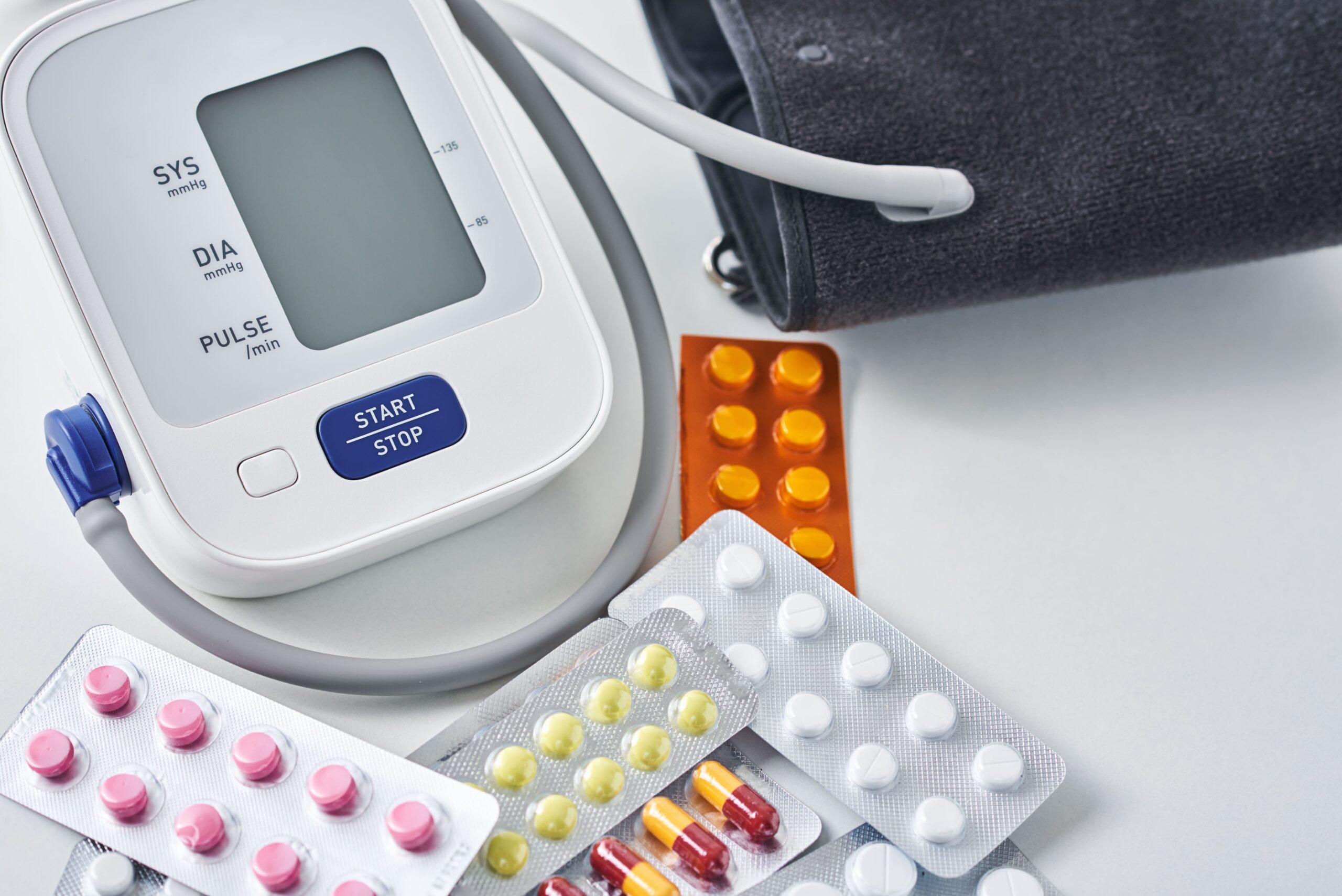Resistant hypertension occurs when blood pressure remains above 140/90 mmHg despite taking three or more antihypertensive medications from different drug classes at optimal doses, including a diuretic. This condition affects a subset of hypertensive patients and requires specialized evaluation to identify underlying causes and optimize treatment strategies.
The diagnosis requires accurate blood pressure measurement using proper technique. Patients must take their prescribed medications consistently at therapeutic doses for at least four weeks. White coat hypertension—elevated readings only in clinical settings—must be ruled out through home blood pressure monitoring or 24-hour ambulatory monitoring before confirming resistant hypertension.
Diagnostic Criteria and Confirmation
Blood pressure measurements require standardized technique for accurate diagnosis. Patients should rest quietly for 5 minutes before measurement, with feet flat on the floor and arm supported at heart level. Multiple readings taken on separate occasions confirm persistently elevated pressures.
Ambulatory blood pressure monitoring provides 24-hour readings during normal daily activities. Daytime averages above 135/85 mmHg or nighttime averages above 120/70 mmHg indicate true hypertension. This monitoring eliminates white coat effect and reveals nocturnal hypertension patterns.
Medication adherence assessment forms an important diagnostic step. Pharmacy refill records, pill counts, and direct questioning help identify non-compliance. Some specialists use therapeutic drug monitoring to verify adequate medication levels when adherence remains uncertain.
Primary Causes of Treatment Resistance
Secondary hypertension accounts for many resistant cases. Primary aldosteronism causes excess aldosterone production, leading to sodium retention and potassium loss. Diagnosis requires aldosterone-to-renin ratio testing, with values above 20-30 suggesting this condition.
Renal artery stenosis narrows kidney blood vessels, triggering compensatory mechanisms that raise blood pressure. Doppler ultrasound or CT angiography reveals vessel narrowing. Chronic kidney disease itself contributes through fluid retention and hormonal changes, with serum creatinine and estimated glomerular filtration rate guiding assessment.
Sleep apnea disrupts normal blood pressure patterns through intermittent hypoxia and sympathetic activation. Overnight polysomnography identifies apnea episodes, with an apnea-hypopnea index above 15 indicating moderate to severe disease requiring treatment.
💡 Did You Know?
Thyroid disorders, both hyperthyroidism and hypothyroidism, can cause resistant hypertension through different mechanisms affecting heart rate, vascular resistance, and fluid balance.
Medication Factors and Interactions
Suboptimal medication regimens often contribute to apparent resistance. True optimization requires maximum tolerated doses of complementary drug classes. ACE inhibitors or ARBs target the renin-angiotensin system, calcium channel blockers reduce vascular resistance, and diuretics address volume overload.
Drug interactions reduce antihypertensive effectiveness. NSAIDs like ibuprofen interfere with multiple blood pressure medications by promoting sodium retention. Oral contraceptives, decongestants, and certain antidepressants counteract antihypertensive effects through various mechanisms.
Timing of medication doses affects control. Long-acting formulations provide consistent 24-hour coverage. Evening dosing of certain medications improves nocturnal blood pressure control and reduces morning surge phenomena.
Lifestyle Contributors
Excessive sodium intake overwhelms medication effects. Daily sodium should remain below 2,300 mg, requiring attention to processed foods, restaurant meals, and hidden sources. Potassium intake through fruits and vegetables helps counterbalance sodium effects.
Alcohol consumption raises blood pressure through multiple mechanisms. Men should limit intake to two standard drinks daily, women to one. Complete abstinence may be necessary for optimal control in resistant cases.
Obesity increases blood pressure through increased cardiac output, sodium retention, and hormonal changes. Weight loss of 5-10 kg typically reduces systolic pressure by 5-20 mmHg. Combining dietary changes with regular physical activity enhances results.
⚠️ Important Note
Sudden blood pressure changes or severe headaches with readings above 180/120 mmHg require immediate medical attention to prevent organ damage.
Diagnostic Workup Components
Laboratory evaluation screens for secondary causes and end-organ damage. Basic metabolic panel assesses kidney function and electrolyte balance. Complete blood count identifies anemia, which can worsen cardiac workload. Thyroid function tests reveal hormonal contributors.
Specialized testing targets suspected secondary causes. 24-hour urine collection for metanephrines rules out pheochromocytoma. Dexamethasone suppression testing evaluates Cushing’s syndrome. Renal artery imaging visualizes vascular abnormalities.
Cardiac evaluation determines existing damage and guides treatment intensity. Electrocardiogram shows left ventricular hypertrophy patterns. Echocardiography quantifies chamber size and wall thickness. These findings influence medication selection and target blood pressure goals.
Advanced Treatment Strategies
Mineralocorticoid receptor antagonists like spironolactone provide significant blood pressure reduction in resistant cases. Starting doses of 12.5-25 mg daily minimize side effects while achieving therapeutic benefit. Potassium monitoring prevents hyperkalemia complications.
Beta-blockers address sympathetic overdrive components. Newer vasodilating beta-blockers like carvedilol or nebivolol offer advantages over traditional agents. These medications particularly benefit patients with concurrent cardiac conditions.
Direct vasodilators represent later-line options. Hydralazine acts directly on arterial smooth muscle. Minoxidil provides potent vasodilation but requires concurrent beta-blocker and diuretic therapy to manage reflex tachycardia and fluid retention.
✅ Quick Tip
Blood pressure apps with reminder features help track readings and medication timing, providing valuable data for specialist consultations.
Monitoring and Follow-up Requirements
Home blood pressure monitoring guides treatment adjustments between office visits. Patients should record morning and evening readings using validated devices. Weekly averages provide more reliable data than isolated measurements.
Laboratory monitoring frequency depends on medications used. Potassium and creatinine require checking 1-2 weeks after starting ACE inhibitors, ARBs, or potassium-sparing diuretics. Subsequent monitoring occurs every 3-6 months once stable.
Treatment response assessment involves multiple parameters. Blood pressure targets typically aim for office readings below 130/80 mmHg. Home readings should average below 125/75 mmHg. Symptom improvement and absence of medication side effects indicate successful management.
What Our Internal Medicine and Hypertension Specialist Says
Resistant hypertension often stems from multiple overlapping factors rather than a single cause. Systematic evaluation identifies contributory elements—from medication non-adherence to hidden secondary causes. Patient partnership in monitoring and lifestyle modification enhances pharmaceutical interventions. Many cases labeled “resistant” achieve control through comprehensive assessment and individualized treatment plans addressing all contributing factors.
Putting This Into Practice
- Maintain a detailed blood pressure log recording morning and evening measurements, including heart rate and any symptoms experienced during readings
- Create a complete medication list including all prescriptions, supplements, and over-the-counter drugs to share with healthcare providers
- Implement dietary sodium restriction by reading nutrition labels and choosing fresh foods over processed options
- Establish consistent sleep patterns and address snoring or daytime fatigue that might indicate sleep apnea
- Schedule regular pharmacy consultations to review potential drug interactions and optimize medication timing
When to Seek Professional Help
- Blood pressure consistently above 140/90 mmHg despite taking three or more medications
- Sudden vision changes, severe headaches, or chest pain with elevated readings
- Medication side effects interfering with daily activities or quality of life
- Blood pressure readings varying significantly throughout the day
- Morning blood pressure surge above 160/100 mmHg
- Difficulty affording or obtaining prescribed medications
- Family history of secondary hypertension causes
Commonly Asked Questions
How long should I try current medications before considering them ineffective?
Antihypertensive medications require 4-6 weeks at therapeutic doses to show full effect. Dose adjustments should occur gradually, with reassessment at each interval. Switching medication classes too quickly prevents accurate assessment of individual drug effectiveness.
Can resistant hypertension resolve over time?
Some cases improve with sustained lifestyle changes, particularly weight loss and sodium restriction. Secondary causes like sleep apnea or aldosteronism may resolve with specific treatment. However, most patients require long-term specialized management to maintain control.
What’s the difference between uncontrolled and resistant hypertension?
Uncontrolled hypertension includes all cases above target regardless of treatment. Resistant hypertension specifically requires failure of three optimized medications including a diuretic. This distinction guides treatment intensity and specialist referral decisions.
Should I stop medications that seem ineffective?
Never discontinue blood pressure medications without medical supervision. Apparent ineffectiveness might result from drug interactions, timing issues, or masking of even higher pressures. Sudden cessation can cause dangerous rebound hypertension.
How do specialists approach resistant hypertension differently?
Hypertension specialists conduct systematic evaluation for secondary causes, optimize complex medication regimens, and access specialized testing. They coordinate care for complications and provide access to clinical trials or emerging therapies when standard approaches fail.
Next Steps
Resistant hypertension requires systematic evaluation beyond standard blood pressure management. Specialist consultation ensures comprehensive assessment and access to advanced treatment options when initial approaches prove insufficient.
If you’re experiencing persistently elevated blood pressure despite multiple medications, our MOH-accredited internal medicine and hypertension specialist Dr. Adrian Mondry can provide comprehensive evaluation and treatment options.




